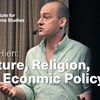odds

Labour market policies against the odds? Job finding among participants in ESF projects in comparison with the Public Employment Service
Research report 2014/1, 115 p. The European Social Fund (ESF) has complemented the Swedish Employment Service’s work assisting job seekers in finding new jobs, by financing projects specifically design
Predicting Alcohol Misuse Among Australian 19-Year-Olds from Adolescent Drinking Trajectories
Substance Use & Misuse, doi.org/10.1080/10826084.2018.1517172. AbstractBackground: Alcohol use in adolescence predicts future alcohol misuse. However, the extent to which different patterns of adol This study investigated how adolescent trajectories of alcohol consumption during the school years predict alcohol misuse at age 19 years. Data were drawn from 707 students from Victoria, Australia, longitudinally followed for 7 years. Five alcohol use trajectories were identified based on the frequency of alcohol use from Grade 6 (age 12 years) to Grade 11 (age 17 years). At age 19 years, participants completed measures indicating Heavy Episodic Drinking (HED), dependency – Alcohol Use Disorders Identification Test (AUDIT) and social harms. At 19 years of age, 64% of participants reported HED, 42% high AUDIT scores (8+), and 23% social harms. Participants belonging to a steep escalator trajectory during adolescence had twice the odds at 19 years of age of high AUDIT scores and social harms, and three times greater odds of HED than participants whose alcohol use slowly increased. Stable moderate consumption was also associated with an increased risk of HED compared to slowly increasing use. Abstinence predicted a reduced likelihood of all forms of misuse at 19 years of age compared to slowly increased alcohol use. Trajectories of drinking frequency during adolescence predict alcohol misuse at age 19 years. Although rapid increasing use presents the greatest risk, even slowly increasing drinking predicts increased risk compared to abstinence. The findings indicate that alcohol policies should recommend nonuse and reduced frequency of use during adolescence.
Ethnic variations in mental health among 10–15-year-olds living in England and Wales: The impact of neighbourhood characteristics and parental behaviour
Health & Place 51 (2018) pp.189–199, doi.org/10.1016/j.healthplace.2018.03.010. Abstract Several studies indicate that young people from certain ethnic minority groups in Britain have significant men
Managing values in climate science
Plos Climate Abstract Climate science has been deeply affected by social and political values in the last fifty years [1]. If we focus on climate denial and obfuscation, we might see the influence of va
More Than a Revolving Door: Corporate lobbying and the socialization of institutional carriers
Organization Studies, https://doi.org/10.1177/0170840619848014 Abstract In this paper, I study an epitomic case of institutional carriers of ideas: revolving door lobbyists. In a multi-directional interv
Air: Pollution, Climate Change and India's Choice Between Policy and Pretence
Harper Collins India’s air pollution is a deadly threat. Will its politics meet the challenge? Exposure to the world’s worst air pollution kills over a million Indians each year. It also affects childr
Completed: Criminal networks and social organizing
How does criminal organization, for example in street gangs, arise? By understanding how the networks work, we can also suggest crime prevention strategies.

The more things change, the more they stay the same. A follow up of participants in Social Fund financed projects
Research report 2014/5, 77 p. Every year in Sweden, over one hundred thousand job-seekers are assigned to local labour market policy measures, of which a large proportion are financed with money from t
Josef Hien: Cultural Political Economy and Crisis of economic integration in Europe
Venue: Institutet för framtidsstudier, Holländargatan 13, 4th floor, Stockholm, or online.Research seminar with Josef Hien, political scientist and researcher at the Institute for Futures Studies.Regis

Northern Saints and Southern Sinners? Culture, Religion and Economic Policy
Research seminar with Josef Hien, political scientist and researcher at the Institute for Futures Studies. This presentation promotes a novel explanation of the rift between Northern and Southern memb








